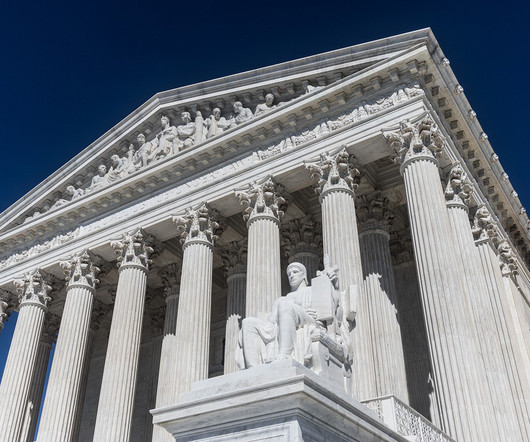US Supreme Court rules that federal government can be liable under Fair Credit Reporting Act
JURIST
FEBRUARY 9, 2024
In a unanimous slip opinion, the US Supreme Court ruled on Thursday that the Fair Credit Reporting Act (FCRA) waives sovereign immunity and that the federal government can be liable for incorrect debt reporting that damages credit scores. Justice Neil Gorsuch authored the opinion of the court.














Let's personalize your content